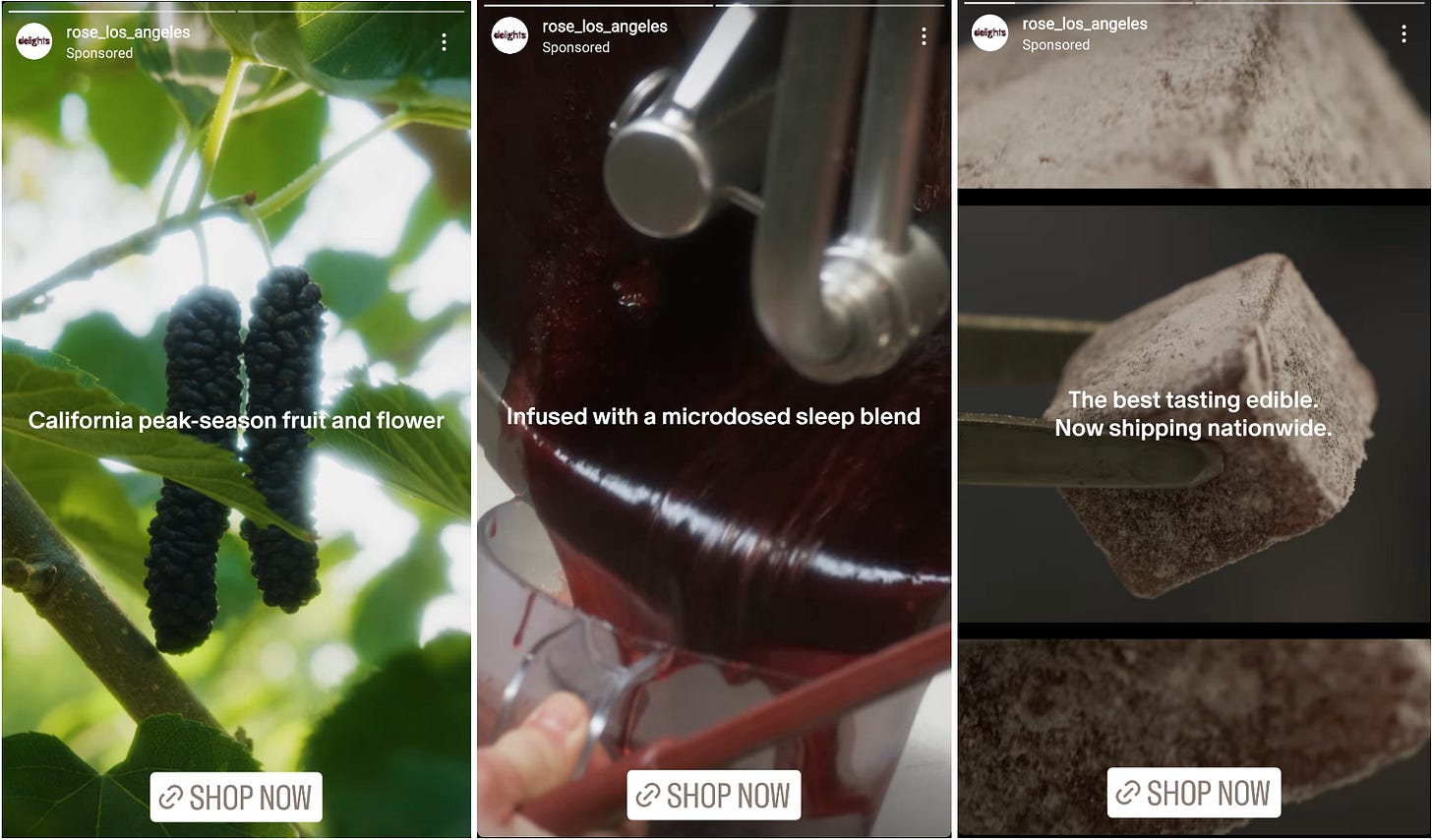Weed Ads That Work
How Rose LA & Mesobis market on Meta.
Friday, January 12, 2024
Time to read: About 7 minutes. Contains 1,514 words.
I’m in my lurker era on Instagram. My proximity to weed is what brings most people to my content, but a fear of getting deleted/suspended/flagged has me uncomfortably on my toes whenever posting. So, I’ve become more of an observer of late, saving gossip posts and new product releases to consider for newsletter coverage; screenshotting hot takes to fact-check later. At some point while scrolling in the past couple of months, I caught a couple of posts that made me do a faster double-take than any recent weed drama—sponsored posts from weed brands.
I thought this app hated us?! I thought we were hanging on by a thread, keeping as low a profile as possible. I didn’t think we were remotely able to enter into open ad agreements with Meta itself. People are out here drawing scribbles through the word “weed” in images containing text. And yet, Rose Los Angeles and Mesobis—both licensed THC edible brands in California—are running ads?
Yes, they are, and so are others. Major news flash, my fellow cannabis entrepreneurs: it’s possible, and it’s a real option for brands in both the regulated and DTC hemp markets (Rose exists in both).
I reached out to Nathan Cozzolino, co-founder of Rose Los Angeles, and Nelson Cury, founder of Mesobis, to ask how they’re doing it, if it’s working, what terms/imagery to avoid, and their advice for brands interested in advertising with Meta. Keep reading for the full interview.
Keep reading with a 7-day free trial
Subscribe to Sticky Bits by Lauren Yoshiko to keep reading this post and get 7 days of free access to the full post archives.


